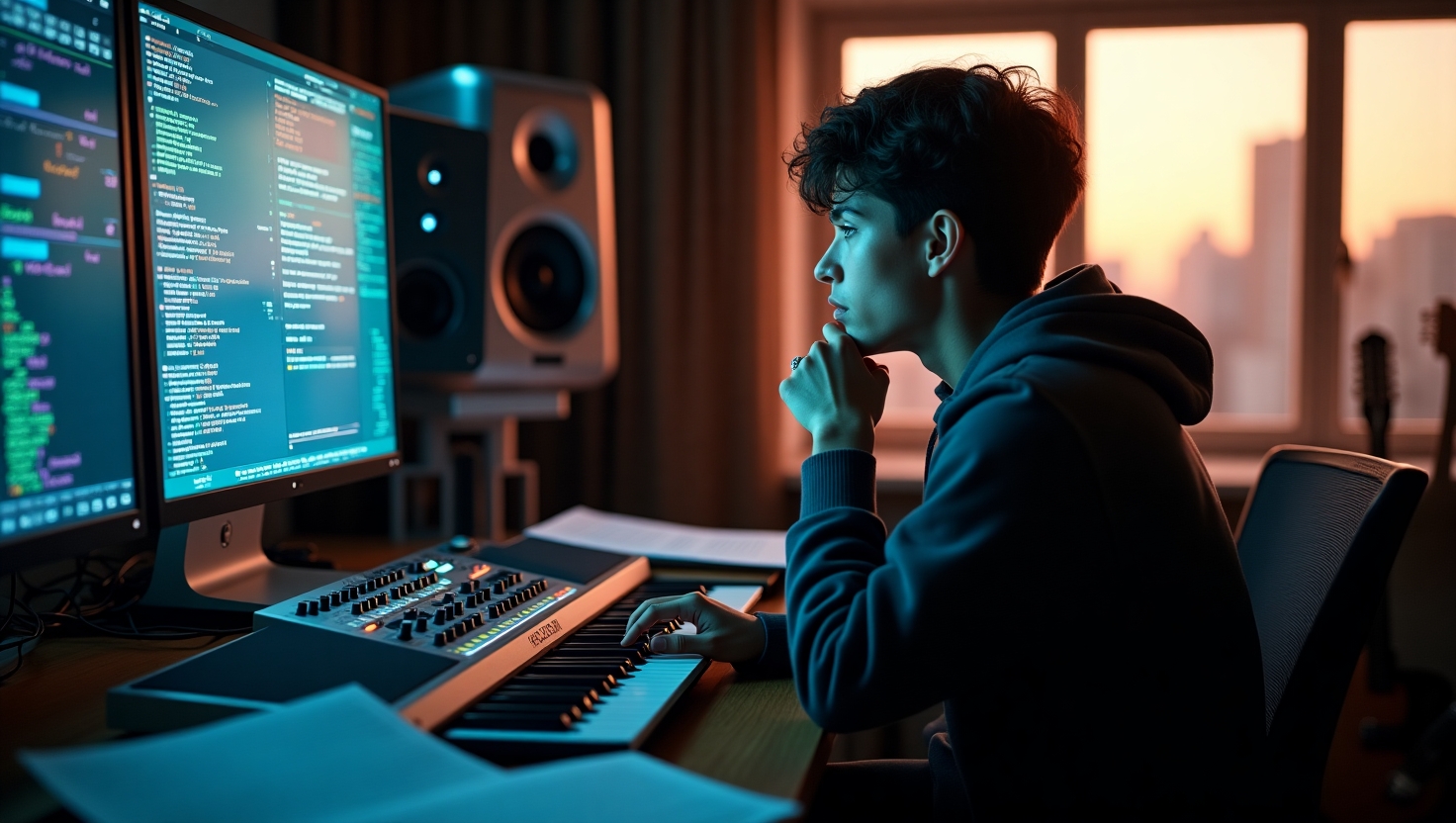AI Musicians: The Future of Music and Creativity
Introduction
Imagine a world where your favorite tunes aren’t birthed from human minds but generated by machines. Welcome to the audacious realm of AI musicians—where artificial intelligence challenges the very fabric of artistic expression and musical creativity. As AI algorithms stretch the boundaries of AI creativity, their role within the fabric of music technology heralds a bold new chapter in the renascence of the music industry. It is not just a whisper of change but a resounding symphony—one that poses tantalizing questions: Are AI musicians simply the future of music, or are they perpetuating a new creative revolution?
Background
AI musicians—what are they? At their core, AI musicians are sophisticated algorithms crafted to produce music that rivals human-created compositions. These digital composers have evolved from the musical notation software and synthesizers of yesteryears to cutting-edge algorithms capable of crafting entire symphonies.
In tracing the lineage of music technology, one finds a fascinating chronicle of revolutions—from the days of Edison’s phonograph to digital audio workstations (DAWs) that empower creators worldwide. Yet, it is the quantum leap in AI creativity during the 21st century that has truly redefined possibilities in musical composition. Pivotal advances in neural networks and machine learning underpin this shift, enabling AI to compose motifs and melodies with a flair once thought exclusive to human muses.
Trend
Today, AI is not merely present in music production; it is shaking things up. The blend of machine learning with audio processing tools has piqued the interest of the music world. Increasingly, renowned artists are integrating AI musicians into their creative arsenals, while audiences grow more accepting—and even enamored—of tunes produced or influenced by AI.
Take OpenAI’s MuseNet or Aiva Technologies for instance—initiatives that illustrate the successful intertwining of AI with traditional music creation. MuseNet, by using deep learning, can create 4-minute musical compositions with ten different instruments, whereas Aiva is being used by composers to co-create soundtracks and music scores. These cases underscore AI musicians’ ascendancy and hint at a musical horizon where human and machine collaboration is the norm.
Insight
Beyond composing catchy hooks and harmonious sonatas, AI musicians possess an uncanny ability to tap into the emotive essence of music. Consider how apps like Jukedeck, acquired by TikTok, create personalized tracks that cater to the user’s emotional state or thematic needs. These technologies serve as virtual composers, not only mimicking human creativity but often complementing it—reshaping the future of music through innovation that aligns with our emotional and psychological nuances.
Statistics illuminate this transformation: a 2022 McKinsey report highlighted the $12 billion dollar growth of AI-infused media production. Similar momentum is echoed in the software development space, where AI’s creative vigor is tested and revered source.
Forecast
Looking ahead, what role will AI musicians play in the musical landscape? As AI technology continues to advance, their potential to enhance music creativity becomes boundless. We can anticipate AI musicians leading innovations that synthesize groundbreaking genres—marriages of sound that challenge our traditional conceptions of music.
With each iteration, AI musicians might not only produce novel compositions but refine their own \”digital ear,\” crafting experiences uniquely attuned to personal preferences. A future looms where the symbiosis between artists and AI could redefine not just music production processes but the entire ethos of creativity.
Call to Action
The music industry stands on the cusps of its most revolutionary era yet. As listeners, creators, or enthusiasts, we must embrace this thrilling intersection of AI creativity and music by exploring its many facets. Subscribe to our newsletter or delve into resources like Hackernoon’s coverage of AI in innovation to stay abreast of these exhilarating changes.
Dive headlong into the future—a future where AI musicians not only redefine what songs can be but ask us to reconsider the essence of human creativity itself.
Read more on AI’s transformative role in other fields here: Can You Improvise Software? One Developer Put AI to the Test.
